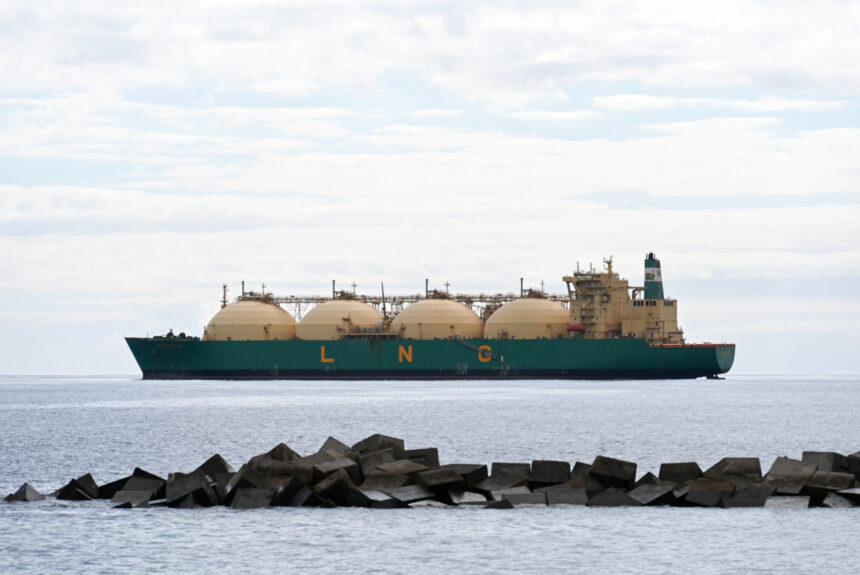When President Biden announced he would be pausing new liquified natural gas (LNG) exports he framed his argument in gratuitous political terms that has rightfully drawn condemnation from across the political spectrum.
“This pause on new LNG approvals sees the climate crisis for what it is: the existential threat of our time,” Biden intoned. “While MAGA Republicans willfully deny the urgency of the climate crisis, condemning the American people to a dangerous future, my Administration will not be complacent. We will not cede to special interests.”
Biden’s statement pumped rhetorical methane into an already overheated debate. Instead of clearly defending his policy, Biden became a pyromaniac in a field of climate-denier strawmen. His approach, which seemed to be dictated by his campaign, was Political Demagoguery 101 – win the argument by portraying any and all critics as unhinged extremists.
>>>READ: The Growing Folly of ‘Big Oil’ Demonization
Biden’s problem is that the critics don’t fit the “MAGA” profile. I’ve been officially excommunicated from MAGA due to my support of Nikki Haley, but the policy criticisms of Biden’s position have nothing to do with former President Trump.
Nick Loris, vice president of public policy at C3 Solutions, warned against making LNG exports the next Keystone XL. Loris wrote, “Rather than slow walk or block LNG exports, it’s in America’s national interest – for economic, security, and environmental reasons – to let the market determine the appropriate level of natural gas trade.”
Scott Lincicome, vice president of general economics and trade at the Cato Institute, argued in the Dispatch (hardly a MAGA publication) that Congress has delegated too much authority to the executive branch to make these decisions “to the detriment of not just those involved but also the broader U.S. economy and national security.”
Meanwhile, Eric Boehm at Reason (another publication not in the MAGA camp), challenged the administration, which insists it’s mitigating an existential threat, to show how the pause will reduce emissions. Boehm wrote, “If the entire policy is predicated on the importance of slowing global emissions, it’s only fair to expect the federal government to show its work and prove that reducing the growth of American LNG exports actually will reduce global emissions.”
Even the Washington Post editorial board derided Biden’s move as “an election-year sop to climate activists that will do much more to unsettle vital U.S. alliances than to save the planet.”
Meanwhile, the Bloomberg editorial board published a thorough critique, arguing that the move is “ill-timed” and “unwise” on three levels. “Halting new approvals of exports is bad for the US, bad for America’s allies and most likely bad for the climate,” Bloomberg wrote. “Election-year politics is apparently the primary motivation. It’s unlikely to advance the president’s climate-change ambitions and undermines the effort to defeat Russia in Ukraine. Biden’s refusal to ‘cede to special interests’ will have been greeted as excellent news in Moscow; in Kyiv, not so much … Biden’s LNG initiative is bad politics and worse policy.”
>>>READ: Don’t Make LNG Exports the Next Keystone XL
An administration that insists it is deeply devoted to reality and “the science” should consider that its logic and reasoning on pausing LNG exports is indistinguishable from the reasoning often used by the most outlandish MAGA grifters and conspiracy theorists. Implying that all critics – from the Washington Post to Bloomberg to generally non-MAGA Freedom Conservatives – are doing the bidding of “MAGA Republicans” is as plausible as Vivek Ramaswamy’s kooky argument that Taylor Swift and the Kansas City Chiefs are colluding with the Deep State to throw the election to Biden. Both arguments are nonsequiturs. Just as it does not follow that if the Chiefs win the Super Bowl then the Deep State deserves the credit, it does not follow that if people criticize Biden’s energy policies “MAGA Republicans” are telling them what to think and write.
If Biden wants policymakers to take climate change – and its potential impacts on the fate of humanity – seriously, he should start by applying a little more seriousness to his own policies, and his rhetoric.
The views and opinions expressed are those of the author’s and do not necessarily reflect the official policy or position of C3.
